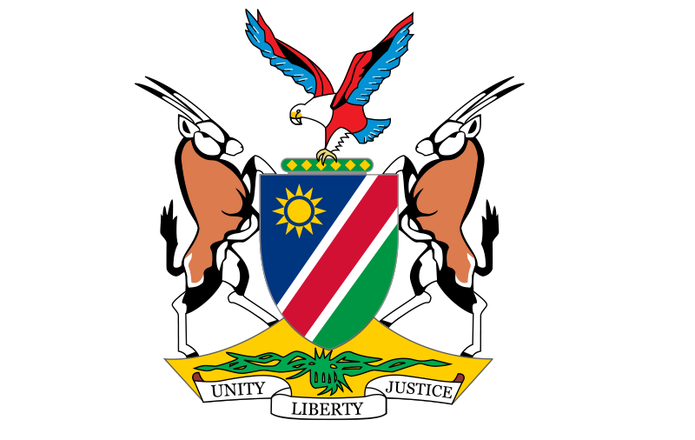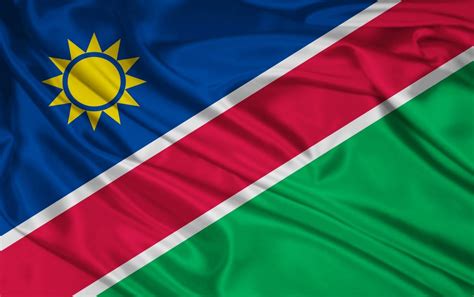 The Republic of Namibia ("nu-mib'-ee-uh") offers many exceptional investment opportunities for U.S. real estate developers, investors and other businesses. Although the last country in Africa to gain its independence, it recognized foreign investment as the key to economic growth and made it a top national priority. Many factors combine to make Namibia an attractive place for U.S. real estate developers, investors and other businesses, including the following:
The Republic of Namibia ("nu-mib'-ee-uh") offers many exceptional investment opportunities for U.S. real estate developers, investors and other businesses. Although the last country in Africa to gain its independence, it recognized foreign investment as the key to economic growth and made it a top national priority. Many factors combine to make Namibia an attractive place for U.S. real estate developers, investors and other businesses, including the following:
- Stable democratic government with one of the most progressive constitutions in the world;
- Government structure like the U.S. with legislative, executive and judicial branches;
- Strict rule of law and protection of property ownership, both domestic and foreign;
- Free-market economy that encourages and rewards entrepreneurship;
- Incentives to attract foreign investment, such as tax incentives for manufacturers, including tax abatements and duty exemptions;
- Newly formed Namibian Investment, Promotion and Development Board (“NIPDB”) within the Ministry of Finance as a “one-stop-shop” to facilitate governmental approvals related to foreign investment;
- Ample supply of semi-skilled labor;
- Two major universities and expanding pool of highly skilled workers;
- Beneficiary of the African Growth and Opportunity Act (“AGOA”) providing for duty-free export to the U.S. of 6,500 products;
- Two large modern seaports that serve as a gateway for imports and exports to and from Namibia and all of southern Africa;
- Excellent railway and road systems (N/S and E/W) for the transportation of raw materials and finished goods to and from the seaports and markets throughout Africa;
- Modern international airport, and business airport in Windhoek;
- Protection for foreign investors for the repatriation of capital, access to foreign currency and international arbitration of disputes;
- Privileged, duty-free and quota free access to European markets for most raw materials and manufactured goods;
- Sophisticated financial and banking sector, with the Namibian Stock Exchange having the second largest market capitalism on the continent;
- High-speed internet and sophisticated domestic and international telecommunications systems;
- Dry sunny climate and open space well-suited for solar and wind generation of electricity;
- Participation in public-private partnerships is actively promoted;
- Integrity in government with very low corruption and crime rates;
- English as the official language, which facilitates dealings with U.S. investors;
- During the last international economic crisis, Namibian investments balanced many of those in the northern hemisphere.
 Namibia is located on the west coast of Africa north of South Africa. It has a total land area of almost 319,000 square miles (about twice the size of California) but an estimated population of only 2,600,000 (slightly less than Chicago, Illinois). This makes it one of the least populated places in the world. The capital city of Windhoek is located in “Khomas,” the central region of Namibia. English is the official language, which facilitates business dealings with the United States. Namibia has three distinct geographic regions: the deserts along the coast in the west, a central plateau, and expansive savannah grasslands in the north. The Kalahari and Namib deserts are among the most magnificent in the world. The latter has towering sand dunes that slope gracefully toward the sea. The wide-open spaces and arid barren terrain of the central plateau contrast dramatically with the flowing grasslands in the north. Wildlife in Namibia is abundant and incredibly diverse. Etosha National Park is famous for the exotic animals which gather around its salt pan and water holes, including giraffes, elephants, lions, leopards, zebras, rhinoceroses, springboks, oryxes, impalas and many more. Namibia has the world's largest population of cheetahs, and there are tens of thousands of seals and pink flamingos along the coast. It is blessed with stunning landscapes, peaceful people, rich cultural traditions, exotic wildlife, a balanced democratic government and an incredible wealth of natural resources.
Namibia is located on the west coast of Africa north of South Africa. It has a total land area of almost 319,000 square miles (about twice the size of California) but an estimated population of only 2,600,000 (slightly less than Chicago, Illinois). This makes it one of the least populated places in the world. The capital city of Windhoek is located in “Khomas,” the central region of Namibia. English is the official language, which facilitates business dealings with the United States. Namibia has three distinct geographic regions: the deserts along the coast in the west, a central plateau, and expansive savannah grasslands in the north. The Kalahari and Namib deserts are among the most magnificent in the world. The latter has towering sand dunes that slope gracefully toward the sea. The wide-open spaces and arid barren terrain of the central plateau contrast dramatically with the flowing grasslands in the north. Wildlife in Namibia is abundant and incredibly diverse. Etosha National Park is famous for the exotic animals which gather around its salt pan and water holes, including giraffes, elephants, lions, leopards, zebras, rhinoceroses, springboks, oryxes, impalas and many more. Namibia has the world's largest population of cheetahs, and there are tens of thousands of seals and pink flamingos along the coast. It is blessed with stunning landscapes, peaceful people, rich cultural traditions, exotic wildlife, a balanced democratic government and an incredible wealth of natural resources.
The Republic of Namibia ("nu-mib'-ee-uh") offers many exceptional investment opportunities for U.S. real estate developers, investors and other businesses. Although the last country in Africa to gain its independence, it recognized foreign investment as the key to economic growth and made it a top national priority. Many factors combine to make Namibia an attractive place for U.S. real estate developers, investors and other businesses, including the following:
Namibia is located on the west coast of Africa north of South Africa. It has a total land area of almost 319,000 square miles (about twice the size of California) but an estimated population of only 2,600,000 (slightly less than Chicago, Illinois). This makes it one of the least populated places in the world. The capital city of Windhoek is located in “Khomas,” the central region of Namibia. English is the official language, which facilitates business dealings with the United States. Namibia has three distinct geographic regions: the deserts along the coast in the west, a central plateau, and expansive savannah grasslands in the north. The Kalahari and Namib deserts are among the most magnificent in the world. The latter has towering sand dunes that slope gracefully toward the sea. The wide-open spaces and arid barren terrain of the central plateau contrast dramatically with the flowing grasslands in the north. Wildlife in Namibia is abundant and incredibly diverse. Etosha National Park is famous for the exotic animals which gather around its salt pan and water holes, including giraffes, elephants, lions, leopards, zebras, rhinoceroses, springboks, oryxes, impalas and many more. Namibia has the world's largest population of cheetahs, and there are tens of thousands of seals and pink flamingos along the coast. It is blessed with stunning landscapes, peaceful people, rich cultural traditions, exotic wildlife, a balanced democratic government and an incredible wealth of natural resources.
